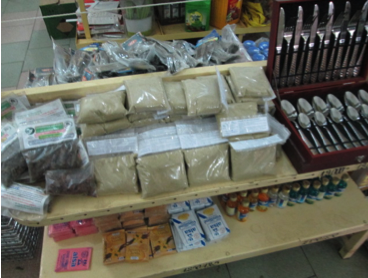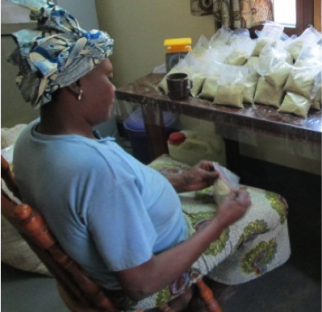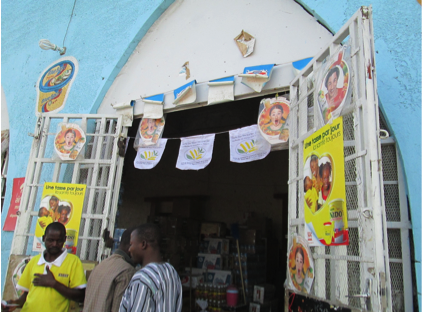
Niger: growing sales of Australian acacia fortified food for children
February 25, 2014
A small enterprise in Maradi, Niger is experiencing growing sales of a food product fortified with Australian acacia seeds that offers school children improving learning abilities with increased nutrition.
The home-based business, directed by a local woman, recently conducted a marketing campaign led by Serving In Mission (SIM) with a small grant of $1000 over 4 months.
The campaign included informative radio discussions on the benefits of the acacia food product, how to use it plus the benefits of growing and caring for Australian acacia trees. The campaign also included a new packaging design, production of a song made for radio, banners placed outside three stores and information brochures printed in French and Hausa, the local language.
Sales of the product have climbed to around 200 sachets a month at local retailers, indicating building consumer confidence.
The addition of ground, lightly roasted acacia seeds as well as other local ingredients, such as dried Moringa leaves, to the traditional grain of millet, results in a significant increase of the available energy, protein, essential vitamins and minerals.
The seeds are grown and harvested by farmers in the Maradi district. Australian acacia trees were introduced into the region in the 1980s because they perform well in dry, hot climates and provide a reliable source of nutritious, storable food, wood for building and firewood as well as local environmental improvements, such as increased soil fertility.
1. Miriama Tsaybou, Director, in production (left) 2. Advertising banners in the doorway of a local retailer (right)World Vision Australia is continuing research into Australian acacias as human food in partnership with The University of Melbourne as well as collecting and testing a new range of species for areas of extremely low rainfall (as low as 250mm per annum).
The results of research trials currently being conducted in Ethiopia by the Tigray Agricultural Research Institute (TARI) in partnership with World Vision, will be presented at a jointly hosted Acacia Conference on 7-8th of March 2014 in Mekele.
Download: Australian acacia food for children


